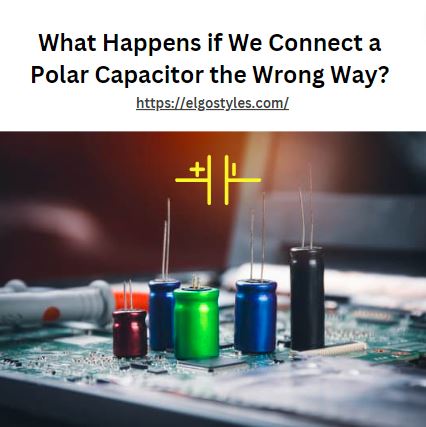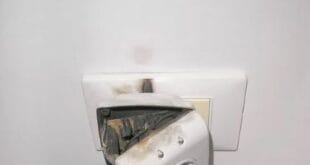Answer:
Connecting a polar capacitor the wrong way can lead to reverse voltage, causing the capacitor to fail catastrophically, potentially resulting in leakage, overheating, and even explosion.

What Happens if We Connect a Polar Capacitor the Wrong Way?
Reasoning:
Polar capacitors, such as electrolytic capacitors, are designed to handle voltage in one direction. Connecting them the wrong way can subject them to reverse voltage. This can break down the dielectric layer, leading to leakage current, overheating, and potentially causing the capacitor to explode. Electrolytic capacitors are particularly susceptible to this due to their thin dielectric layer and high capacitance values. Reversing the polarity can also result in the breakdown of the oxide layer, affecting the capacitor’s capacitance and introducing instability into the circuit.
FAQs:
Q: What is a polar capacitor?
A: A polar capacitor is a type of capacitor that has a specific polarity and is designed to operate with voltage applied in one direction.
Q: What happens if you connect a polar capacitor the wrong way?
A: Connecting a polar capacitor the wrong way can lead to reverse voltage, causing catastrophic failure, overheating, and potentially explosion.
Q: Are all capacitors polarized?
A: No, not all capacitors are polarized. Polarized capacitors, like electrolytic capacitors, have specific polarity requirements.
Q: How can I identify the polarity of a capacitor?
A: The polarity of a capacitor is usually marked on the capacitor body, indicating the positive and negative terminals.
Q: Can non-polarized capacitors be connected either way?
A: Yes, non-polarized capacitors can be connected in either direction without any issues.
Q: What are the consequences of reversing the polarity of an electrolytic capacitor?
A: Reversing the polarity of an electrolytic capacitor can lead to breakdown of the dielectric layer, causing leakage, overheating, and potentially explosion.
Q: Can I reverse the polarity of a polar capacitor if I apply a lower voltage?
A: Even at lower voltages, reversing the polarity of a polar capacitor can still cause damage due to the breakdown of the dielectric layer.
Q: How can I prevent damaging polar capacitors?
A: Always double-check the polarity markings before connecting polar capacitors, and ensure correct polarity during installation.
Q: Can reverse polarity damage other components in a circuit?
A: Yes, if a polar capacitor fails due to reverse polarity, it can damage other components in the circuit due to overheating or explosion.
Q: Can I salvage a polar capacitor after reversing its polarity?
A: In most cases, reversing the polarity irreversibly damages the capacitor, rendering it unusable.
 Electrical Engineering World Wiring a Brighter Tomorrow!
Electrical Engineering World Wiring a Brighter Tomorrow!



